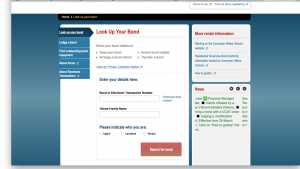This is an excerpt of our interview with Bobby Semple, a recruitment specialist and founder of Simplified Recruitment Solutions. He has 15 years of experience in London and Melbourne, working for companies such as Rolls Royce, Virgin Atlantic, and My Chemist Warehouse Group.
Here is what Bobby had to say.
Robyn:
It’s a gorgeous day in Melbourne. I’m joined by Bobby Semple from Simplified Recruitment Solutions. Bobby, thank you for joining us.
Bobby:
Thanks for having me today, Robyn. I’m actually based in a place called Rainbow Beach in Queensland today.
Robyn:
You have been in Australia for a number of years. How many years have you been here now?
Bobby:
I think this is my eighth year now.
Robyn:
I think I’m going on to the cheeky 13 years this year. And I came via the UK so I think that’s why you and I always have a good laugh. You came directly from the UK, but I think you’ve travelled a bit as well, haven’t you?
Bobby:
Yes, I came directly from the UK. About 8 years ago I met my ex-partner in the UK. She was Australian and she couldn’t handle the cold anymore. So decided to come back to her home country and dragged me along with her so and I didn’t leave and here I am still.
Robyn:
Well, I must be honest. I don’t cope very well with the short days in the UK or in Europe for that matter. So I understand where she was coming from.
Bobby:
Yes. When you get to Christmas and it’s dark at 2 o’clock in the afternoon.
Robyn:
Are you still one of those people that walks around on the beach in your T-shirts? All Brits seem to do that when they first arrive.
Bobby:
I think that 16° is a heatwave and it makes me laugh when you see Aussies walking around. It’s 30° and they’ve got a big jacket on. And you’re like, what are you doing? It’s 30° and they’re like, “This is just a chilly day for us.”
Robyn:
But they’ve got thongs on. Actually, we shouldn’t call them thongs if we’ve got a British audience, should we now?
Bobby:
You could get in a lot of trouble in England if you do, “You’re not wearing a thong.” In Australia, you put them on your feet. In the UK, they go around the middle. Here, changing a word means something totally different. We call them flip flops in the UK.
Robyn:
Bobby, coming back to, talk us through your recruitment journey. What you were doing in the UK? What brought you to Australia?
Bobby:
So back in the UK, I was in recruitment. I’ve been in recruitment for about 15 years. I’d recruited for some of the largest companies in the world: Rolls Royce, Virgin Atlantic, Goodrich Aviation. I’ve also worked for lots of smaller companies, where I go into those companies, create recruitment processes and systems. Then I build teams around me, move on to the next company and leave them with a self-sufficient recruitment team.
And then once I’d moved to Australia, my first job was working for Chemist Warehouse which is a large pharmacy chain. It’s similar to Boots in the UK, but more like Superdrug. I then created, designed and implemented their recruitment and HR system and trained all the store owners on how to use it. I then became their recruiter and recruited for all those stores.
Next, I moved into my ex-partner’s business. We started a business together. It was a mobile dental company and I grew that business with her from two people to 70 people in about two years and we went from around $70,000 turnover year one to $4.5M in year two.
And it was through that process that I realised that small business owners didn’t have many options when they need to recruitment. They can do it themselves or they can go to a recruitment agency, which can be really expensive. They can charge anything between 10% and 25% of the salary of the person they’re hiring.
So I saw a gap in the market and through lockdown last year, I built a business called Simplified Recruitment Solutions and started to trade in June last year. So we’ve been going for around just over a year now. We got nominated as a small business champions award for the services that we’re providing to the small business–out of 30,000 applicants.
This just goes to show that if you put your mind to good use that you can come up with some really good things and that’s the wonderful thing about Australia. That’s two businesses that I’ve been involved in. I’ve made a success and you can do that here.
There are lots of opportunities for you to come here. They say like…I think it’s in the USA, “You can go and do anything you wanted.” I find it’s more in Australia now. It’s such a young country. There are so many things we don’t have in this country. Like you mentioned the catalogue, well, I nearly started a company a bit like Argos in the UK because they don’t have anything like it here.
We’re a very new business but since June last year, we’ve serviced around 50 clients around Australia across all different industries. So I’m really in a good spot to help people out who are looking for information about how to find a job in Australia–what’s it like to work in Australia.
I’m here to answer any questions the audience may have and obviously the questions that you have as well, Robyn.
Robyn:
I’d keep you here all day. I’m enjoying having you to interview because you are a migrant. You understand what it’s like. Migrants are told there’s a skills shortage and then they can’t find jobs!
I’d really like to work through that with you today and just be able to give people some tips.
The Hottest Industries in Australia
Robyn:
There are so many myths. There are so many rumours. There’s so much noise. It’s hard for people to actually understand what’s right, what’s wrong about finding work in Australia.
How would you describe the current climate and which industries are busy? Where is hot to go? Talk me through what’s happening at the moment.
Bobby:
As a business ourselves, over the last few weeks, we’ve probably increased our leads and sales by 50%. So that gives you a good idea of the mentality of business owners within Australia.
Many businesses have turned to online solutions and they’re more secure and are confident that their employees can work from home. So yes there was a bit of a lull last year because no one knows what’s going on. But now everyone has got all their systems and stuff sorted. It’s moving forward.
There are businesses that aren’t open. Hospitality’s really hard at the moment.
Good industries at the moment
Finance
Finance is booming. The good thing about finance, whether you’re an accountant or you’re a bookkeeper or anything to do with anything like that, is that they’re one of the most secure businesses to be in.
Even though we were in a pandemic and we’re in lockdown, everybody had a question for their bookkeeper because of all the government grants and other finance questions.
Healthcare
The other industry is healthcare. Again we’ve seen this stay strong through the pandemic.
If you’re small or large, the aged care companies are crying out. If you start a business where you will provide services to people in their homes–they might be disabled people, aged care, or the elderly–that industry is always going to need people.
We get clients come to us and they look to 25 people at a time. So that’s to give you an idea.
Pharmaceutical Industry
They’re always busy. If you’re a pharmacist or you have experience working in a pharmacy, boom. If I go back to Chemist Warehouse when I worked with them had over 400 stores across Australia that had 300 people in a head office.
So even though we say pharmacy and the pharmacist, all need support people in the office. So these create jobs as well.
IT
Robyn:
Companies have had to move to online and perhaps not had the resources to deal with technical issues. So I guess it’s moving into that field too during COVID.
Bobby:
Exactly, and that increases the workload for people in IT, so IT companies boom as well because everyone’s going “Oh I need to go online.”
Cybersecurity
Let’s give NAB (a large Bank in Australia) as an example. So normally all their trading and all the internet would be done at the branch but they’ve allowed people to work from home. But people who work from home don’t have a secure enough internet connection because they’re using their own.
So cybercrime is increasing because people are tapping into people’s home networks to get into people like NAB.
So that is a booming industry. That is probably on the cusp of a big boom and over the next two years. We’re going to see that really increase.
Another point, we don’t really have any universities that are training people here, so we are going to have to rely on people coming from overseas to come in.
Robyn:
Ok, any students that are out there, if you’re thinking about what you should be studying, cyber security is where you need to be.
Bobby:
You’ll have a job for life and the best thing is you can do it from your laptop.
Timeline for Getting Jobs in Australia
Robyn:
I always find the recruitment process in Australia seems very long-winded. Unlike the rental industry, everything’s hard and fast but the recruitment process just seems to be really protracted.
Have you found any difference in that, between the UK and Australia? What is the sort of current timelines for getting jobs in Australia at the moment?
Bobby:
It really depends on the client, i.e. if the client is quick. So with our process what happens is we share the resume of the candidate with the client. If the client comes back to us and says on the same day that they want to meet you and it’s going to be the next day, then it’s a quick process.
So on average through our process–I’d say 80% of the time because our clients are using someone like us and not doing it themselves–it takes around three to six weeks for us to go from advertising the job to placing somebody and that person starts.
Starting that will also depend on the person’s notice period. If they’ve got to give 4 weeks notice obviously it’s going to extend it. So it’s about four to six weeks.
Robyn:
I think it’s always good. I’m always saying to people until you’ve got a job, until you’ve got a rental or until you’ve got those firm groundings it’s hard to know how anything is going to pan out for you. You can’t plan everything. So I think it’s good for them to understand those timelines and budget for that effectively.
So if they are arriving, they can’t expect to be starting a job by the next week unless you’re a forklift driver or something that you can do some contract work for or something like that. But for the other jobs, it is a few weeks at least that you need to budget for.
Bobby:
Probably longer but two to three months I’d be saying that you need to have just in case.
How To Start The Job Hunting Process
Robyn:
Bobby, what would you say would be the first steps people should take as job seekers. Where should they start?
Bobby:
LinkedIn is by far your best friend out of all of this. A lot of people might direct you to the job boards et cetera and that’s fine to go and see a marketplace to see what jobs there are. Remember though, you’re really bound by what someone is advertising.
I try to educate people and put the power in their hands. If you think about it, ten jobs that you want to do. Then you go and find ten companies in Melbourne that offer that job.
You can then go and find the owner or the manager of that company, connect with that person, say:
“Hey, I like what you do for this company. I’m interested to learn more about how you and where I could find out about opportunities in your organisation.”
Starting that conversation and speaking to people directly like we used to do back in the day, I used to print out, not even print, I used to handwrite resumes and knock on businesses doors and go can I come and work for you?
And LinkedIn allows you to do that with some of the best companies in the world. Job boards, look around on Seek to see who is advertising then reach out, investigate, connect and network.
Robyn:
And I think it’s really important because I find a lot of migrants are not confident to reach out. You have something to give. You have skills. And I think what you’re saying is so important. Thank you, Bobby. I agree with you. Rather do ten quality than 50 random things and say, “I’ve tried 50 companies. I’ve sent out 100 emails.”
Bobby:
That’s it and it depends whether you’re applying for jobs or you’re job hunting. If you’re applying for jobs, that’s where you’re just going to go onto a job board and apply and then wait for someone to come back to you or not come back to you as the case may be.
But if you’re job hunting, if you change your mindset to “I’m going to hunt. I’m going to find my job.” You’ll have better results because you can go and find the job that you want and be confident.
The biggest thing I say to candidates is you’re a business in yourself. You’ve got skills that you are renting to a business and you need to change that mindset. So, you’re renting your services to that business, be confident.
I find that Aussies are a lot more friendly than people had to stay in London. I’ve worked in London and that was hard work. I walked down the street with the dogs today. Someone walked past and said, “How are you going, mate?” Don’t even know him. We’re just having a chat. And it’s having that confidence to reach out to people.
And fortune really does favour the brave and especially in Australia if you are willing to take the extra step, you will go very well.
Robyn:
Yes, love it. Very wise words. Talking about words, some people call it a “resume” some people call it a “CV”. Which is right? Is there such a thing as an Australian CV? Is there a resume?
Bobby:
If you talk about CVs and talk about resumes, people will understand either way.
Where it’s more critical is if you are applying for a job board and you can see the job advert in front of you, understand that there are certain words in Australia that could mean something different to you or vice versa.
As an example of that, let me share my story. I first came over here. I went to a “football” game, a “soccer” game. They call it “soccer” over here. Drives me mad. It’s football! I was at a stadium called AAMI Park and I was waiting to go into the stadium. I really needed a drink. So, I saw a policeman and I said, “Is there a garage anywhere nearby? I need to get a drink.” and he was like, “A garage? Where you park your car?” And I was like, “No. Where you get petrol from?” And he went, “Oh, you got a servo!”
The policemen didn’t know I call it a garage. And so if you’re applying for a job, see the terminology they’re using. Let’s just say you’re applying for a job to be a “servo attendant” and you’ve done that in the UK but you’ve said “garage attendant”, well the system nor the recruiter will know what you mean. In Australia a “garage attendant” might be someone taking the parking fees, not pumping fuel.
Use the words in the advert to apply for the job!
All recruiters have an applicant tracking system (APS) that will match keywords from our job board position to the resumes in the system. So, if we are searching for a “servo” resume and you have written “garage”, the system will throw you out, you won’t even reach first base. So, it’s really important that you try and use those words that they’re using the job Advert.
Robyn:
The key takeaway there also is about having that quality rather than the quantity and having those keywords in your resume that are relevant to Australia and that will fit through the tracking system.
Bobby:
All your answers are in the job advert.
Job Hunting in Australia Top Tips
Robyn:
What would be your top tips?
Bobby:
One tip which we haven’t mentioned–the first one and this is what I did–when I came over I was on a tourist visa so I wasn’t allowed to work. So what I did was I went and volunteered at the Salvo’s–Salvation Army charity shop.
And I volunteered Monday to Friday, 9 to 5, because that’s what I was used to and just keep me busy. But what it did was I met people. I met people who were volunteering there. I saw them every day, every week. So I was talking to them about what I wanted to do when I get my visa. So I was speaking to people who could help me find a job.
Volunteering helps you make connections, you can chat about things going on around you, footy etc. You start to build a rapport with people who are then more likely to help you.
Robyn:
We spoke a lot about confidence earlier and volunteering gives you that confidence and brings you into that local market especially. I can’t underestimate how much it helps people if you go and volunteer and give that back a little bit. That you’ve been able to come into the country and you can give back. I know that there are people now that have gone and volunteered at COVID stations and things like that. I think that’s admirable and if you’ve got something like that on your CV that you’ve arrived in the country and gone straight into volunteering, people will love you.
Bobby:
And a lot of these charities have a head office. I was working in a shop just because that was local to me. But you can still go in; you can still keep your skills up and running. And every industry has a charity that you can go and do something for. It does look better on your resume as well that you haven’t got that gap.
Robyn:
How can people get in contact with you if they’ve got any other questions? Are there any jobs on your desk at the moment that you need people for you?
Bobby:
We’ve actually seen a 50% decrease in people who have reregistered as financial advisors this year. So there’s going to be a lot of shortage there.
We have plenty of positions on our website: www.simplifiedrecruitment.com.au. If people want to reach out to me directly or ask me any questions, need any support in anything I’m happy to do that and my email address is [email protected], but I’m sure Robyn can provide that to you guys if you need anything in the future.
Robyn:
We’ll pop that in the comments and people can copy that down. So thank you, Bobby. It’s a delight as always. I really appreciate it. Thank you to the audience. Thanks so much for sharing your time and you’re very generous that way. I appreciate it.
Bobby:
And just before you close off, if you want to come to Australia, do it! It is one of the best. There’s so much opportunity here. There are only 25 million people in a country that’s the size of the USA. So, you can do everything you can to get to this country – legally of course.







